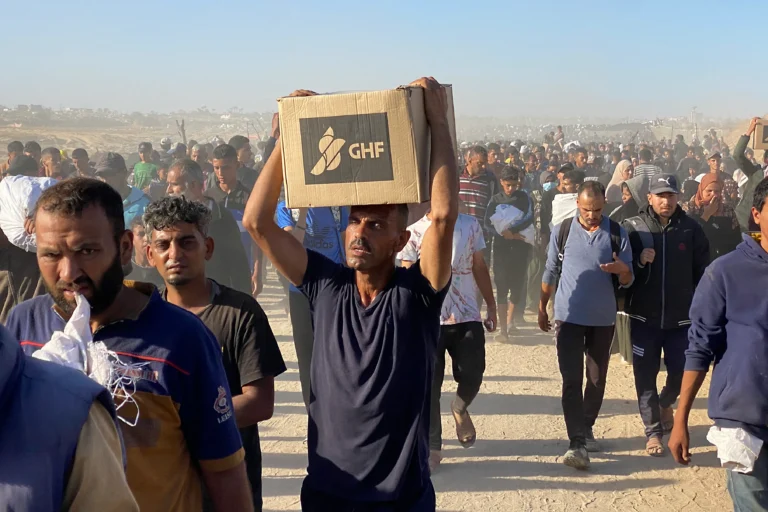By Atoyebi Nike
Aid distribution centres across Gaza remained shut on Tuesday after the Israeli military declared roads leading to them “combat zones,” halting relief efforts and triggering concerns about civilian access to food and medical supplies.
The Gaza Humanitarian Foundation (GHF), an aid group backed by Israel and the U.S., confirmed the closures, attributing them to internal “efficiency and update procedures.” However, critics say the move lacks transparency and comes at a perilous time.
Tensions surged further after local authorities linked to Hamas reported the deaths of at least 27 Palestinians, allegedly shot by Israeli forces near one of the aid depots. It was the third deadly confrontation near relief corridors in as many days.
The Israeli military said its soldiers opened fire after spotting individuals “diverging from approved routes.” However, the army provided no proof of any threat posed by the victims.
“This is no longer aid—it’s a death trap,” a spokesperson for the Palestinian Red Crescent said. “Civilians are being shot for trying to get food.”
Meanwhile, an Israeli air raid struck a school-turned-shelter in Khan Younis, killing at least eight people and injuring others. The building was sheltering hundreds of displaced families. Emergency responders scrambled through debris to reach survivors.
With over a million displaced and food scarcity worsening, the UN has warned that Gaza is on the brink of famine. Humanitarian agencies continue to demand unrestricted access to deliver critical aid, which they say is being obstructed by conflict and political interference.
The GHF’s ties to Israeli authorities have drawn criticism, with aid watchdogs questioning its neutrality. As the violence escalates and access shrinks, calls are growing for international intervention to safeguard humanitarian corridors.
For civilians in Gaza, the closure of food routes and constant danger from shelling and gunfire mean that daily survival is becoming nearly impossible.
